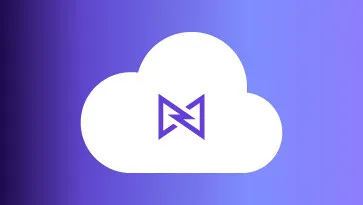In today's digital age, Software as a Service (SaaS) has emerged as a cornerstone of cloud computing, transforming how businesses and individuals access and utilize software applications.
This cloud-based software deployment model has become increasingly popular due to its accessibility, cost-effectiveness, and scalability. Now, SaaS is making significant inroads in the pharmaceutical and life sciences industries, offering solutions to longstanding challenges and driving innovation.
What is SaaS?
SaaS is a software distribution model where applications are hosted by a third-party provider and delivered over the Internet to end users.
Unlike traditional software installations, which are tethered to specific devices, SaaS applications can be accessed from any device with an internet connection and a web browser. This model frees users from the burdens of software setup and maintenance, offering a ready-made solution via subscription.
At its core, SaaS operates through cloud delivery. Providers manage everything from servers to databases and computing resources, ensuring seamless access to applications like email clients, CRM systems, and productivity suites. Users pay a subscription fee for access to the software, which is continually updated with new features and functionalities. This benefits all subscribers simultaneously.
SaaS allows users to access software applications through a web browser, eliminating the need for local installation and maintenance.
This model offers several advantages:
- Accessibility: 24/7 access from any device with an internet connection
- Cost-effectiveness: No upfront hardware costs and flexible payment models
- Scalability: Easy adjustment to changing needs
- Automatic updates: No need for manual software updates
- Enhanced security: SaaS providers invest heavily in security measures
- Data storage and analytics: Cloud-based data storage and reporting tools
SaaS’ integration capabilities
Businesses can enhance functionality by integrating SaaS applications with proprietary software using APIs. This flexibility allows customization while leveraging the robust features of SaaS offerings, enhancing operational efficiency and user experience.
Thus, most SaaS applications employ a multi-customer architecture, where a single instance of the software serves multiple customers. This approach optimizes resource allocation and facilitates efficient user maintenance and updates. Despite shared infrastructure, data segregation ensures privacy and security for each tenant.
Why SaaS in Pharma and Life Sciences?
The life sciences industry, encompassing biopharma, diagnostics, and medical devices, traditionally relies on manual paper processes and siloed workflows due to regulatory constraints, security concerns, and risk aversion.
However, several factors are driving the adoption of SaaS solutions in this space:
- Explosion of healthcare data: Data's increasing volume and complexity require more sophisticated management tools.
- Need for efficiency: SaaS can streamline critical workflows, making drug discovery and development more effective.
- Collaboration: Cloud-based solutions facilitate better communication and data sharing among research teams.
- Next-generation life sciences companies: Younger, tech-savvy professionals are demanding better technology.
Benefits of SaaS for Pharma and Life Sciences
SaaS platforms can address common challenges in clinical trials, such as patient recruitment and retention, data handling, and regulatory compliance. SaaS platforms can offer features like user-friendly informed consent forms, efficient patient tracking, advanced data analysis tools, robust security measures, and automated compliance monitoring, making clinical trials more efficient, cost-effective, and participant-friendly.
The adoption of these technologies is driving a new era in healthcare and life sciences, accelerating the development of vital medical interventions and improving public health outcomes globally. Here’s how:
- Modernization of antiquated workflows: SaaS can replace outdated, manual processes with streamlined, digital solutions.
- Integration of proprietary data: Purpose-built applications can incorporate industry-specific data sets, creating valuable record systems.
- Extensibility: SaaS platforms can expand to cover multiple applications within the life sciences ecosystem.
- Improved data management: Cloud-based storage and analytics tools help manage the vast amounts of data generated in research and clinical trials.
- Enhanced collaboration: SaaS facilitates better communication and data sharing among global research teams.
- Regulatory compliance: Purpose-built SaaS solutions can incorporate industry-specific regulatory requirements.
- Cost savings: SaaS can significantly reduce costs by reducing IT infrastructure needs and streamlining processes.
Examples of SaaS in today’s life sciences
Pfizer, a leading biopharmaceutical company, has made remarkable strides using SaaS in its digital transformation journey. In a recent interview, Wes Barnes, Senior Director of Pfizer Digital Hosting Solutions, and Jon Harrison, Managing Director of North America Infrastructure Engineering at Accenture, discussed Pfizer's cloud migration's impressive scale and speed.
In just eight months, the company successfully migrated 75% of its global IT footprint to the public cloud, encompassing 7,800 server instances, 7,500 databases, and 4,700 applications. This monumental shift has enabled Pfizer to accelerate innovation, enhance patient experiences, and streamline drug development processes.
SaaS will play a crucial role in clinical trial’s future landscape
As the pharmaceutical and life sciences industries evolve, SaaS solutions will continue to drive innovation, efficiency, and collaboration. The remarkable success of companies like Pfizer in leveraging cloud-based technologies demonstrates the transformative potential of SaaS in this sector. By embracing these digital solutions, life science companies can streamline their operations, accelerate research, and ultimately bring life-changing therapies to market faster. The journey towards a fully digitized, cloud-enabled life sciences industry is well underway, and those who adapt to this new paradigm will be best positioned to lead the charge in improving global health outcomes.
Medable’s SaaS platform helps customers discover ROI
Medable offers its customers a SaaS platform that enables a more straightforward, easy trial experience that helps streamline data collection across enrollment, informed consent, eCOA, ePRO, sensors/wearables, telehealth visits, and more.
Our platform enables customers to build trials independently or continue to use Medable as a full-service solution. To learn more about our platform, click here.








.webp)
